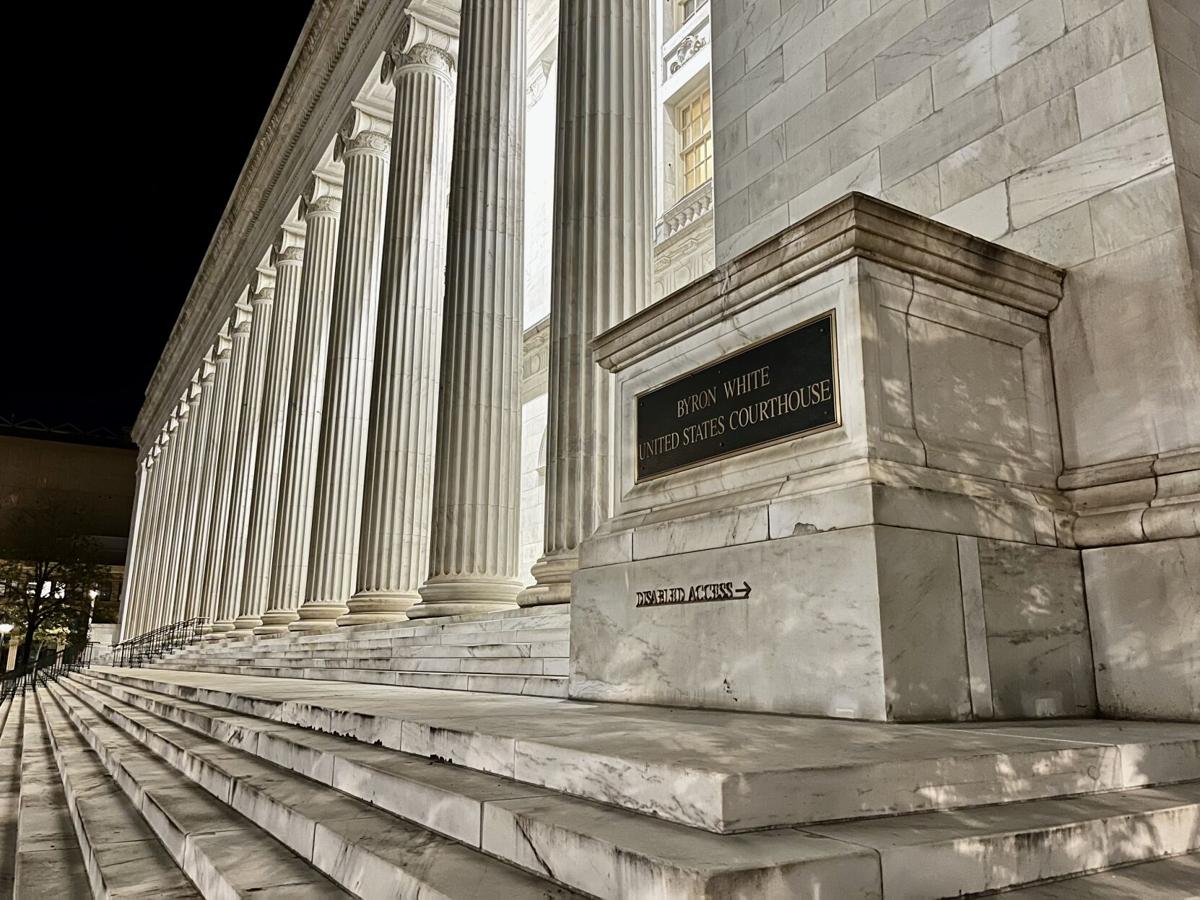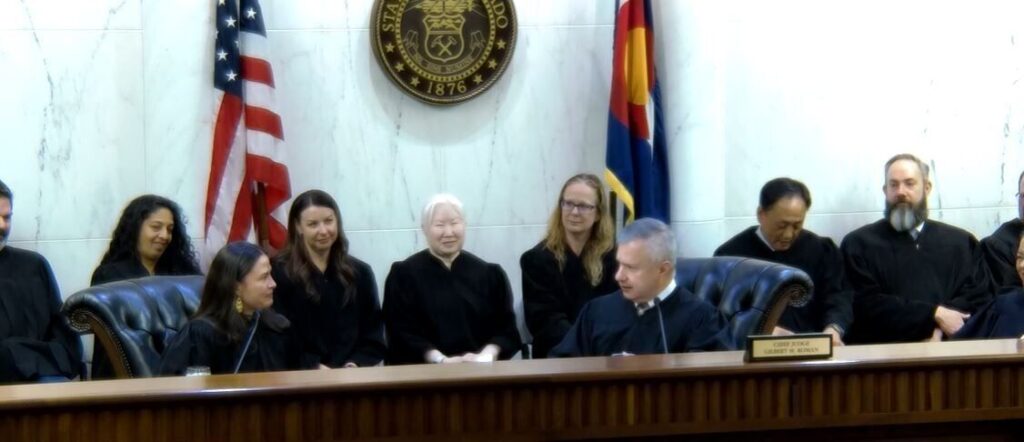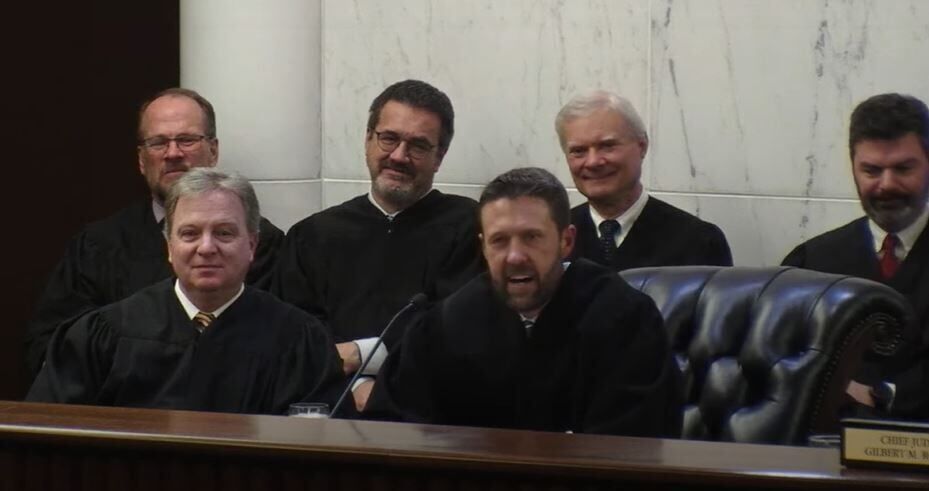10th Circuit grants immunity to Aurora officers who killed machete-wielding man
The federal appeals court based in Denver ruled last week that four Aurora police officers committed no constitutional violation by shooting and killing a man with alleged mental illness who charged at them while holding a machete.
Initially, a trial judge green-lit the excessive force case for trial after determining a jury could find the officers contributed to the need to shoot Shamikle Jackson by failing to de-escalate the encounter or seek more information about what was going on inside Jackson’s apartment.
But a three-judge panel of the U.S. Court of Appeals for the 10th Circuit concluded the officers’ actions were reasonable because the call Jackson himself placed to 911, plus the fact they could not see him until the last minute, justified the use of deadly force.
Judge Timothy M. Tymkovich, in the panel’s May 14 opinion, suggested courts should give police officers the benefit of the doubt when they choose to engage, rather than to investigate.
“(I)n cases when law enforcement officers respond to situations involving potentially emotionally disturbed individuals, the applicability of precedent regarding unreasonable escalation turns on the nature of the 911 call and the officer’s knowledge of the potential for violence,” he wrote. “The officers did not know anything for certain because they had not yet encountered Mr. Jackson and were given conflicting information that materially influenced what actions would be reasonable.”
In March 2019, Jackson called 911 to report two people were dead and he was holding hostages at his apartment in the 2200 block of N. Dallas Street. Dispatch noted a machete was “possibly” involved and it was “pretty confusing” what was happening.
Officers knocked on the door where Jackson was living with his sister. She said she did not know if anyone was hurt. Although one officer suspected the call was fake, he changed his mind once Jackson called out, “Come and get me.”
Another officer took Jackson’s sister aside and learned Jackson may have mental health issues. She did not believe her brother had access to weapons. The officer radioed the details to the others, who were forming a line inside Jackson’s apartment. At the head of the line, Officer Justin Henderson had his firearm at the ready.
As they moved down the hallway, Henderson kicked open the bedroom door and gave commands to Jackson. Jackson then came through the door with a machete in his hand. Henderson fired four times, killing Jackson.
Jackson’s surviving parents sued Henderson and the other officers for excessive force and failing to intervene. In response, the officers invoked qualified immunity, a judicial doctrine that generally shields government employees from civil lawsuits unless they violate a person’s clearly established legal rights.
In January 2023, U.S. District Court Senior Judge R. Brooke Jackson (no relation to Shamikle Jackson) denied the request for immunity. Based on the evidence, he believed a jury could conclude officers knew Shamikle Jackson posed no immediate danger and had mental health issues, but they chose to proceed with “maximum force and haste.”
“A reasonable jury could find that advancing rapidly toward the room in which Mr. Jackson was sheltering without saying anything other than a single command to ‘come on out’,” wrote Judge Jackson, “unreasonably precipitated the situation in which the officers then needed to use deadly force.”

The Byron White U.S. Courthouse in Denver, which is home to the U.S. Court of Appeals for the 10th Circuit.
Michael Karlik michael.karlik@coloradopolitics.com

The Byron White U.S. Courthouse in Denver, which is home to the U.S. Court of Appeals for the 10th Circuit.
On appeal to the 10th Circuit, the officers’ attorneys accused Judge Jackson of ignoring key facts and drawing incorrect conclusions from the evidence.
“Officers could not and did not know that by going inside to sweep the apartment, they would have to use lethal force,” lawyer Heidi J. Hugdahl told the 10th Circuit panel at oral arguments. “Officers did not unconstitutionally escalate the situation because of their reckless or deliberate behavior. Officers had been called to investigate a homicide where they understood that additional lives were in immediate peril.”
The plaintiffs countered that Judge Jackson correctly determined a jury could deem the officers’ actions unnecessarily led to the shooting of Shamikle Jackson.
“They walk in and they realize there’s no dead bodies in this apartment. There’s no one crying out for help. There’s nothing strange about this situation that would support it’s a hostage situation,” attorney Kylie M. Schmidt said.
“At the time the shots were fired, it really is kind of a fog-of-war situation,” Tymkovich observed.
Ultimately, the appellate panel faulted Judge Jackson for denying the officers immunity for reasons not supported by the evidence. Tymkovich noted that even if police can be held liable for recklessly contributing to the need for deadly force, the officers’ actual conduct was not reckless.
“Obviously, the situation self-reported by Mr. Jackson was a serious crime if true. While the officers developed some evidence from Mr. Jackson’s sister, they had every reason to believe Mr. Jackson might pose a threat to himself or others,” Tymkovich wrote.
Finding no constitutional violation, the 10th Circuit deemed the officers immune from liability.
The case is Flores et al. v. Henderson et al.












